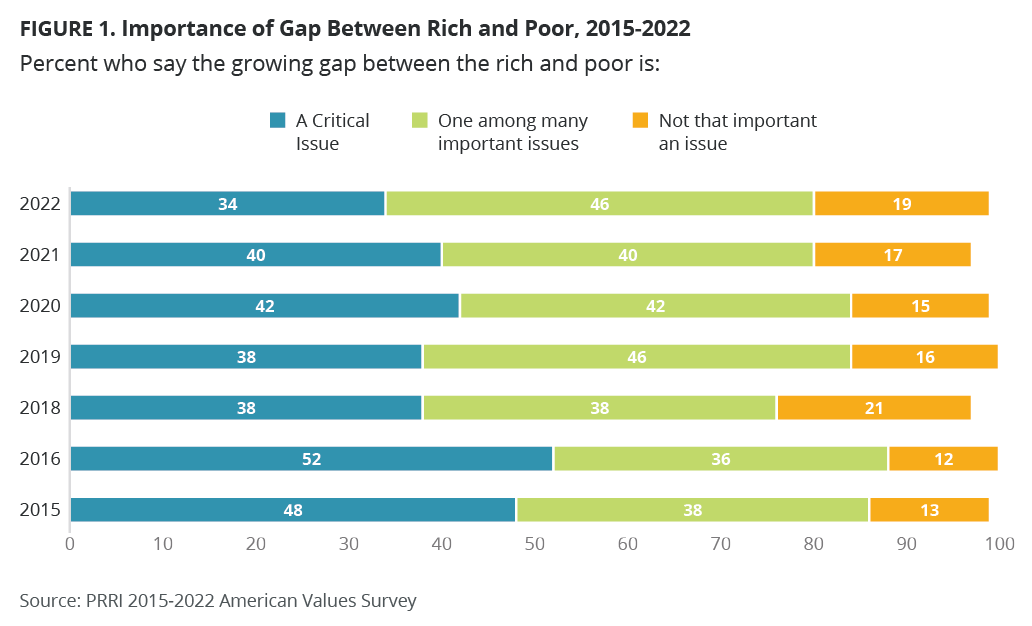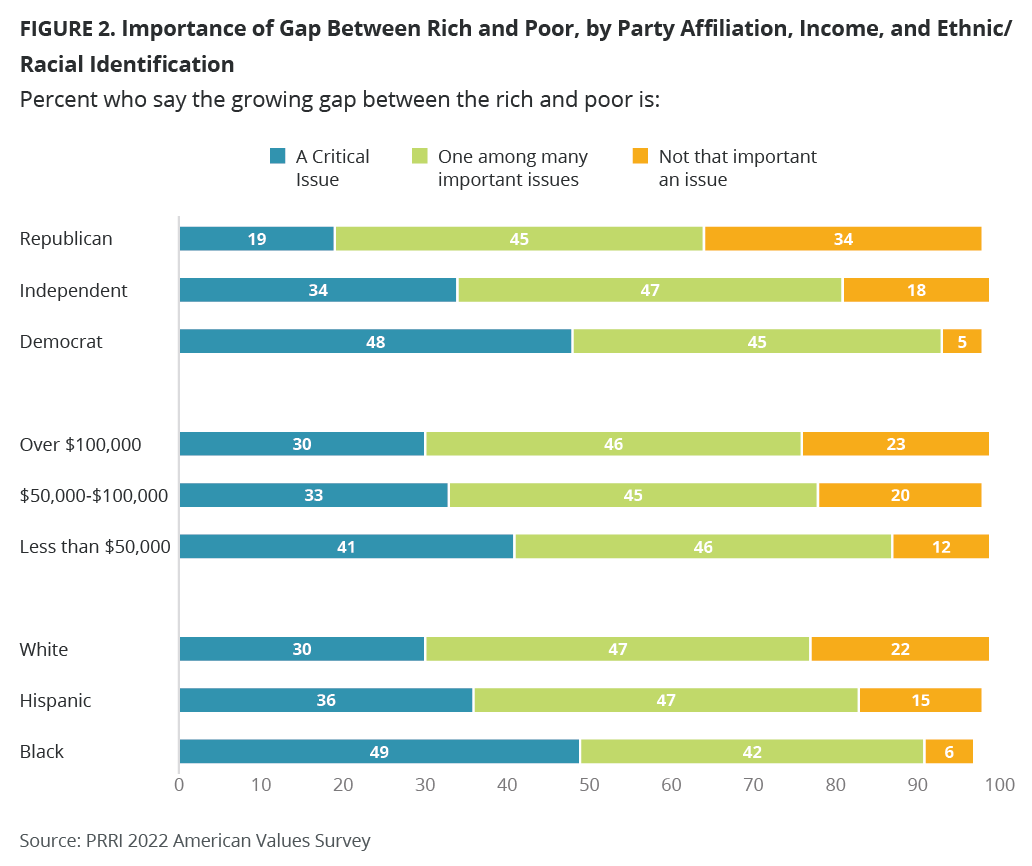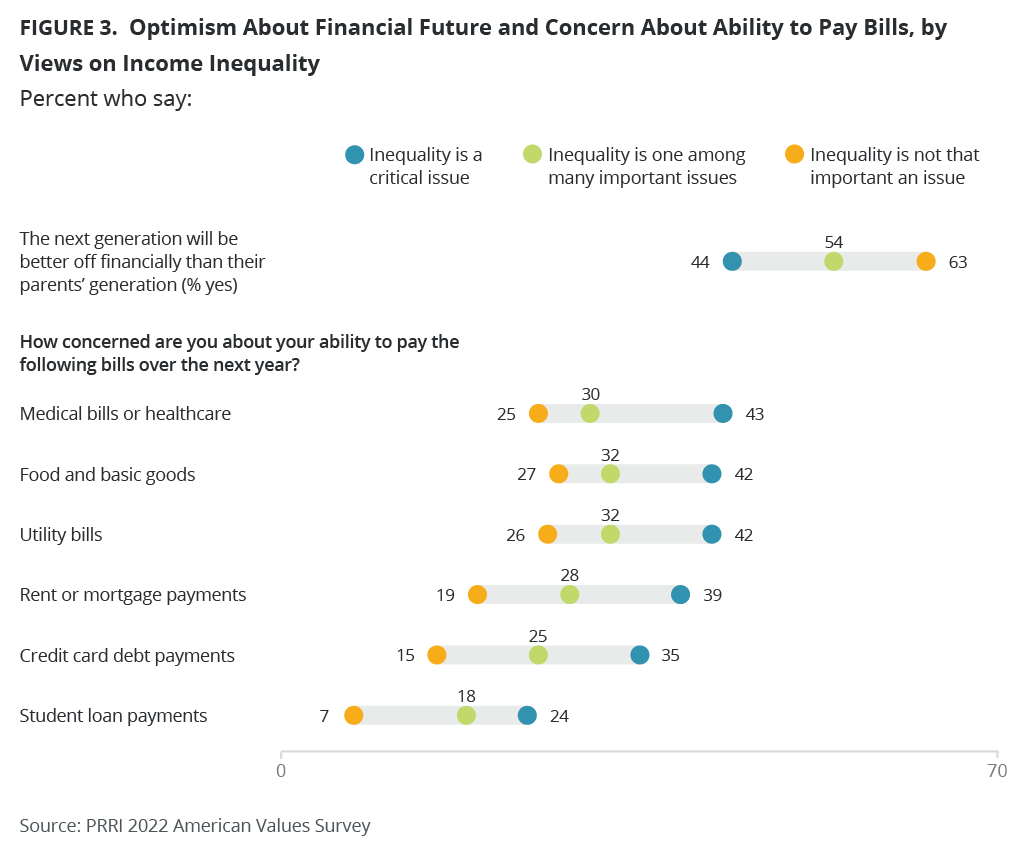In recent years, income inequality, which refers to how unevenly income and income growth are distributed across the population, has increased, with the COVID-19 pandemic, technological advances, and globalization serving as prime contributors. For example, the Gini Index, a tool used to measure income inequality, increased 1.2% between 2020 and 2021, the first major rise since 2011. Thus, the wealth gap remains one of the most tangible experiences in the lives of many Americans. This spotlight examines Americans’ views on the wealth gap and whether they see it as a critical issue.
PRRI’s 2015–2022 American Values surveys find that the vast majority of Americans say that the growing gap between rich and poor is a critical issue or one among many important issues, though the percentage has declined, from 86% in 2015 to 80% in 2022.

The 2022 PRRI American Values survey shows that nearly half of Democrats (48%) say that the growing gap between the rich and poor is a critical issue, compared with 34% of independents, and 19% of Republicans.
There are pronounced differences on this question between racial groups and between people of different income levels. In the 2022 survey, about half of Black Americans (49%), 36% of Hispanic Americans, and 30% of white Americans say that the growing gap is a critical issue. Further, 41% of Americans who make less than $50,000 annually regard the wealth gap as a critical issue, compared with 33% of those who make between $50,000 and $99,999, and 30% of those earning $100,000 or more. Most notably, Americans who report having an income of $100,000 or more are almost twice as likely as those who make less than $50,000 to state that the wealth gap is not important (23% vs. 12%).

Americans who are concerned about the wealth gap are less likely to be optimistic about the future. The 2022 PRRI American Values survey asked respondents whether they believe “the next generation will be better off financially than their parents’ generation.” Among those who say that the growing gap between the rich and poor is a critical issue, only 44% agree that the next generation will be better off, compared with the vast majority (63%) of those who say that the wealth gap is not important.
Additionally, Americans who view income inequality as a critical issue are significantly more likely than those who do not view it as an important issue to say that they are concerned about their ability to pay for food, bills, and other necessities. For example, among those who think that income inequality is a critical issue, more than four in ten are concerned about their ability to pay medical bills (43%) and utility bills (42%) and to buy food and basic goods (42%). Meanwhile only about one in four of those who say income inequality is not important express concern about these three financial issues (25%, 26% and 26%, respectively). Similarly, there is a difference of almost 20 percentage points between those who say that income inequality is a critical issue and those who say it is not an important issue when asked about their ability to pay rent or mortgage (39% vs. 19%), credit card bills (35% vs. 15%), and student loans (24% vs. 7%).

As wealth accumulation continues to disproportionately favor top-percentile earners, issues of taxation, inflation, and inadequate redistribution policies are at the forefront of the political landscape, with the vast majority of Americans agreeing that the wealth gap is a critical issue facing the country.